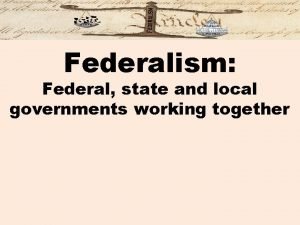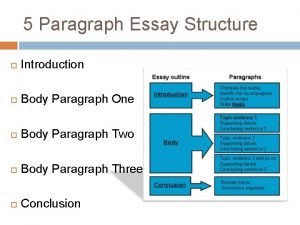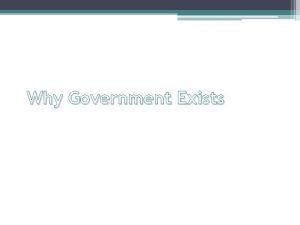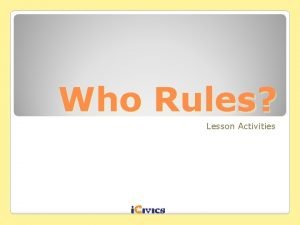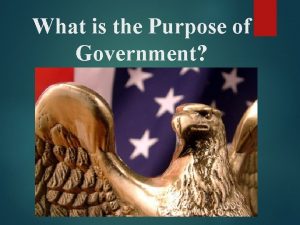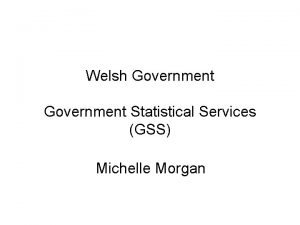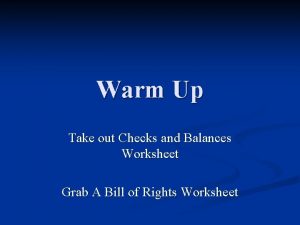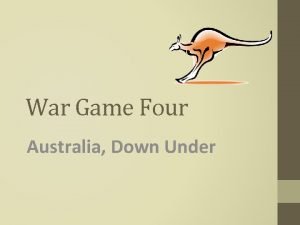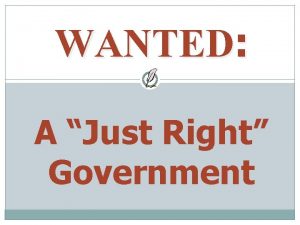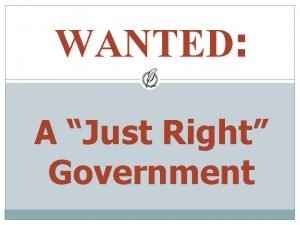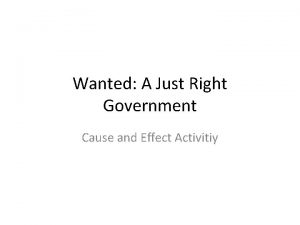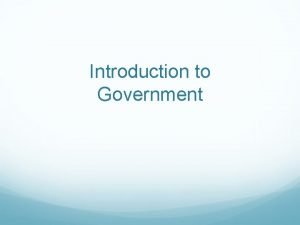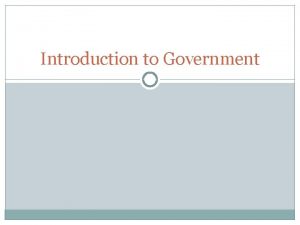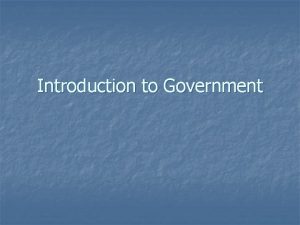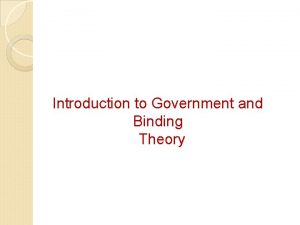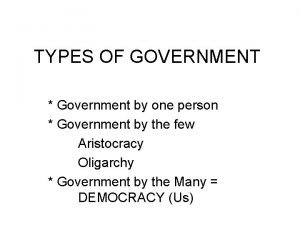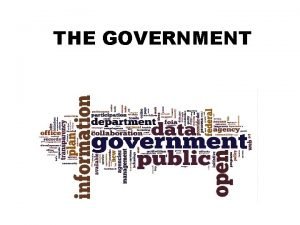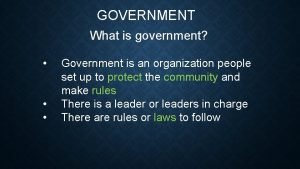INTRODUCTION TO GOVERNMENT What is government Government is














- Slides: 14

INTRODUCTION TO GOVERNMENT What is government?

Government is the institution through which society makes and enforces its public policies.

The “state” is the dominant political unit in the world. A state is defined as a body of people living in a defined territory, organized politically (under a government) and having the power to make and enforce law without the consent of any higher authority.

Characteristics of a state: � 1. Population � 2. Territory � 3. Sovereignty (supreme and absolute power) � 4. Government (politically organized)

Four theories of the origins of the state…. .

Evolutionary Theory � The state developed naturally out of the early family and evolved over time.

The Force Theory � The state was born out of force, when a person or small group controls an area.

The Divine Right Theory � The right to rule is granted to certain individuals directly from the will of God.

The Social Contract Theory � People are the source of political power. The state exists to serve the will of the people.

CLASSIFICATIONS OF GOVERNMENT

Geographic Distribution of Power � Unitary – centralized government, all power held by single agency. � Federal – division of powers between central and “local” � Confederate – alliance of independent states

Relationship of Legislative and Executive Presidential – separation of powers (people elect the president Parliamentary – legislative and executive branches must be the same party

Number of People Who Can Participate Dictatorship (Totalitarian Regime) Direct Democracy Representative Democracy

Basic Concepts of Democracy � � � 1. Fundamental worth of the individual 2. Equality of all persons (opportunity, before the law) 3. Majority Rule/Minority rights 4. Necessity of Compromise 5. Individual freedom
 State and federal constitutions
State and federal constitutions Merits of parliamentary government
Merits of parliamentary government Local government finance
Local government finance Introduction paragraph format
Introduction paragraph format Confederation system of government
Confederation system of government Types of government
Types of government Purpose of government
Purpose of government Gss graduate route
Gss graduate route Chachua primary school
Chachua primary school Hierarchy of state government
Hierarchy of state government Limited government examples
Limited government examples Who represents the queen in australia's government
Who represents the queen in australia's government Wanted:a just right government
Wanted:a just right government Wanted a just right government
Wanted a just right government A just right government cause and effect
A just right government cause and effect
